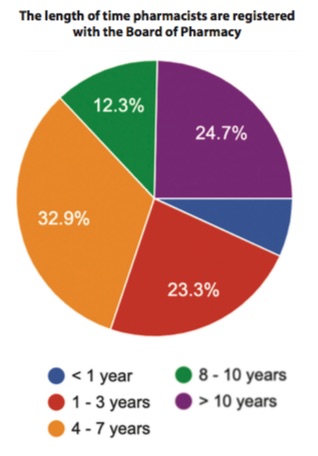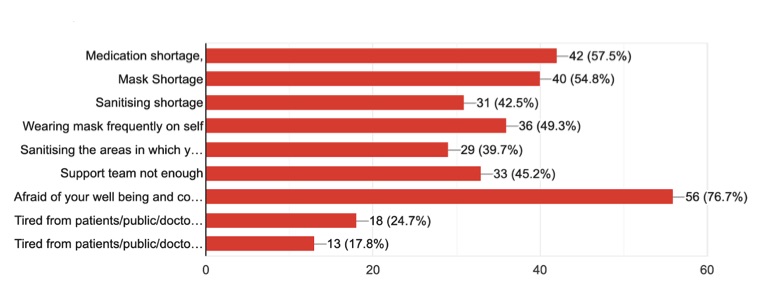UWI study reveals the experiences of local pharmacists during the COVID-19 pandemic
With COVID-19 cases on the rise again, pharmacists are one of the frontline professionals most accessible during the pandemic. They work tirelessly alongside other healthcare professionals to meet the medication needs of all patients. A team of researchers from UWI St Augustine, together with a pharmacist from the Eric Williams Medical Science Complex, has conducted an online survey to explore the role, awareness and experiences of pharmacists during this very challenging time for their profession.
The survey’s results showed that pharmacists reported that they suffered from anxiety (46.6 percent) and stress (65.8 percent) because of shortages in the supply of medications, increased demands from patients and physicians, having to wear a mask all the time, being overworked, and being mostly unappreciated for their work. The majority (86.3 percent) felt underappreciated for their efforts during the pandemic in the health community and suffered from depression, frustration, mental health disorders and lack of economic support. Reports from around the world have also indicated that pharmacists suffer from burnout due to overtime, increased workload, reduced staffing levels, and many changes in work schedules.
The research team consists of Ms Stephanie Mohammed (Department of Pre-Clinical Sciences), Professor Andanappa Gadad (Professor of Pharmaceutical Chemistry at the School of Pharmacy), and Dr Venkatesan Sundaram (Senior Lecturer in Veterinary Anatomy at the School of Veterinary Medicine), all from UWI’s Faculty of Medical Sciences, as well as Mr Ryan Mohammed, pharmacist.

“Overall, pharmacists are on the front lines of the fight against the COVID-19 pandemic. They play a vital role in disease prevention and infection control, adequate storage and supply of medications, patient care, and physician support,” explained Mr Mohammed. “Now that vaccines are being distributed, they are in the perfect position to update on vaccinations and reach out to those who are uninformed, helping to improve vaccination rates.”
Ethical approval for the study was waived and, during August 2020 and March 2021, responses were received from pharmacists who had experience in the public (53.4 percent) and private (27.4 percent) sectors. Most of the respondents were between the ages of 26 and 30.

Figure 1.0 Pie chart showing the length of time pharmacists are registered with the Board of Pharmacy.
Results indicated that pharmacists were very knowledgeable about the virus, stating that they followed the news and followed the Centre for Disease Control and Prevention (CDC) guidelines. It was reported that seven out of 10 patients would request information about COVID-19 regarding mask wearing, disinfection, symptoms experienced, treatment options, and how to interact with their children. Patients also expressed concern about their pet contracting the disease (23.3 percent), and requested information to ensure their pet’s safety.

Figure 2.0 Bar chart major concerns of pharmacists during COVID-19.
Ms Mohammed explained that pharmacists play a larger role than is well known because they are medical advi-sors, educators, and advocates. “These pharmacists need to be recognised for their contributions to raising awareness, dispensing medications, and adjusting workloads to ensure that all patients receive excellent care,” she said.
The research team extended their sincere thanks to Dr Andrew Rahaman, President of the Pharmacy Board of Trinidad and Tobago, for his assistance during the start of the project, which helped to provide a better under-standing of challenges facing pharmacists. They also expressed gratitude to the pharmacists themselves, who have been heroes in the long battle against the deadly and disruptive pandemic.
“The role of pharmacists during COVID-19 is stressful, but they adapt to help the public and other healthcare workers with disease prevention and infection control, patient care, medication dispensing, and generally edu-cating and inspiring all. These pharmacists should be acknowledged for their contribution in fighting against the COVID-19,” said Ms Mohammed.